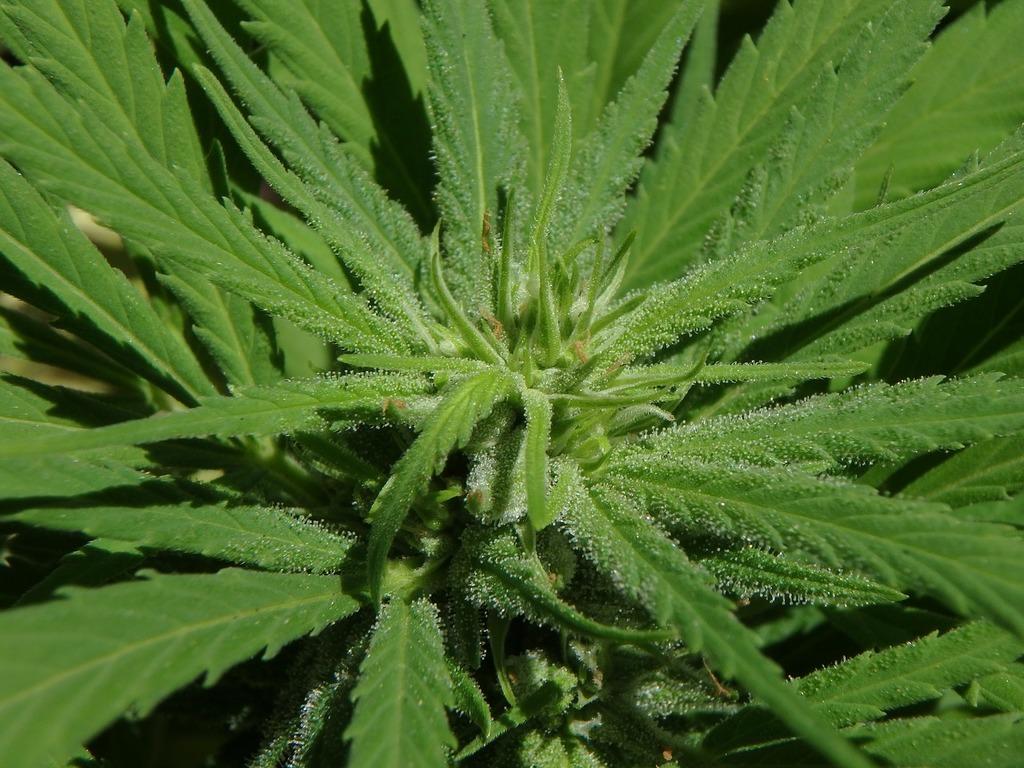Picture a shifting landscape dotted with hues of green and red, where state borders act as boundaries between legality and prohibition. The cannabis legalization map in the United States paints a complex picture of contrasting regulations and evolving attitudes toward this once controversial plant. Navigating through this intricate terrain is both fascinating and perplexing, as laws and perceptions continue to change, shaping the future of cannabis across the nation. Join us on a journey through this captivating map of legalization, delving into the intricacies of cannabis laws and the broader implications they hold.
Table of Contents
- Exploring the Landscape of Cannabis Legalization Across the World
- A Closer Look at the Global Cannabis Legalization Trends
- Navigating the Complexities of Cannabis Legalization Laws and Regulations
- Understanding the Impacts of Cannabis Legalization on Society and Economy
- Strategic Recommendations for Countries Considering Cannabis Legalization
- Q&A
- The Conclusion


Exploring the Landscape of Cannabis Legalization Across the World
In North America, countries like Canada and several states in the U.S. have embraced the legalization of cannabis for both medicinal and recreational use. This shift has not only generated significant revenue but has also led to the normalization of cannabis consumption in these regions.Moving over to Europe, countries such as the Netherlands have long been known for their progressive approach to cannabis laws, with the famous coffee shops in Amsterdam serving as a tourist attraction for many. Similarly, countries like Portugal and Spain have decriminalized the possession of small amounts of cannabis, focusing more on harm reduction strategies.
In contrast, some regions in Asia, like Japan and Singapore, maintain strict anti-cannabis laws with severe penalties for possession or use. However, there are discussions and movements towards exploring the potential benefits of medical cannabis in countries like Thailand and South Korea, signaling a potential shift in attitudes towards cannabis in the region.
| Continent | Key Points |
|---|---|
| North America | Legalization for both medicinal and recreational use |
| Europe | Varying degrees of decriminalization and progressive cannabis laws |
| Asia | Mixed approaches with strict anti-cannabis laws and emerging discussions on medical cannabis |


A Closer Look at the Global Cannabis Legalization Trends
In recent years, the global landscape of cannabis legalization has been evolving at a rapid pace, with more and more countries reevaluating their stance on the plant. From North America to Europe and beyond, the shifting attitudes toward cannabis have sparked a wave of legislative changes that are reshaping the industry.One of the most notable trends in cannabis legalization is the growing acceptance of medical cannabis as a legitimate form of treatment. Countries such as Canada, Germany, and Australia have established robust medical cannabis programs, allowing patients access to cannabis-based medications for various health conditions. This shift highlights the increasing recognition of cannabis as a therapeutic resource.
Moreover, the decriminalization and legalization of recreational cannabis in certain regions have opened up new economic opportunities and challenged outdated perceptions. Countries like Uruguay, Canada, and several states in the U.S. have taken steps toward regulating the adult-use cannabis market, paving the way for a burgeoning industry that is projected to continue expanding. This global trend towards embracing cannabis reflects changing societal norms and a reevaluation of traditional drug policies.
| Country | Legalization Status |
|---|---|
| Canada | Recreational & Medical |
| Germany | Medical |
| Uruguay | Recreational & Medical |


Navigating the Complexities of Cannabis Legalization Laws and Regulations
Embarking on a journey through the intricate landscape of cannabis legalization laws and regulations can feel like navigating an ever-shifting terrain. Given the diverse approaches taken by different regions, understanding the nuances becomes paramount. From the sunny shores of California to the bustling streets of New York, each state paints its unique strokes on the canvas of cannabis legislation.As we delve deeper into the cannabis legalization map, we encounter a mosaic of rules and restrictions that shape the industry’s boundaries. Some states embrace the green wave with open arms, allowing recreational and medicinal use, while others proceed with caution, limiting access and distribution. Key considerations may include:
- Legalization Status: Is cannabis legal for medical or recreational use, or both?
- Licensing Requirements: What are the prerequisites for obtaining a license to operate within the industry?
- Sales and Taxation: How are cannabis products taxed and regulated in the market?
- Advertising Restrictions: What limitations exist concerning marketing and promoting cannabis products?
Exploring this intricate web of regulations demands a keen eye for detail and a thorough understanding of the legal tapestry. By deciphering the legislative puzzle piece by piece, stakeholders can navigate the ever-evolving landscape of cannabis laws with clarity and confidence. Stay informed, stay compliant, and chart your course through the cannabis legalization maze.

Understanding the Impacts of Cannabis Legalization on Society and Economy
In recent years, the landscape of cannabis legalization has undergone significant transformations across various regions. This shift has sparked debates and discussions on the profound impacts this policy change has on both society and the economy. Understanding the nuances and repercussions of cannabis legalization is crucial for policymakers, stakeholders, and the general public alike.Societal Impacts: The legalization of cannabis has led to changes in societal attitudes towards the substance. With increased access to legal cannabis products, individuals have more choices in managing their health and well-being. Additionally, legalization has the potential to reduce the stigma associated with cannabis consumption and promote education on responsible usage.
Economic Influence: The economic ramifications of cannabis legalization are multifaceted. From creating new job opportunities in cultivation, distribution, and retail sectors to generating tax revenue for local and state governments, the cannabis industry has the potential to stimulate economic growth. Furthermore, legalization may help curb illicit cannabis markets, leading to increased consumer safety and regulation compliance.
Regulatory Framework: Implementing a robust regulatory framework is essential to navigate the complexities of cannabis legalization effectively. Regulations regarding product quality, marketing restrictions, age limitations, and licensing requirements play a pivotal role in shaping the outcomes of legalization efforts. Striking a balance between promoting industry growth and ensuring public safety remains a key challenge for policymakers moving forward.
| Key Takeaways |
|---|
| Promotes societal health and well-being. |
| Contributes to job creation and economic prosperity. |
| Requires a comprehensive regulatory framework for successful implementation. |
Strategic Recommendations for Countries Considering Cannabis Legalization
When considering cannabis legalization, countries must approach the issue strategically to ensure a smooth transition and positive outcomes. To navigate this complex landscape effectively, key recommendations should be taken into account to address various aspects of legalization.
One crucial aspect is establishing a robust regulatory framework that covers cultivation, distribution, and consumption. **Regulations** should focus on quality control, licensing procedures, potency limits, and retail restrictions to maintain safety and accountability within the industry. An adaptable framework that can adjust to changing needs and market dynamics will be essential for long-term success.
Furthermore, investing in public education and awareness campaigns is vital to dispel myths, promote responsible use, and address any potential stigma associated with cannabis. **Education** initiatives should target different demographics, highlighting both the benefits and risks of cannabis consumption to ensure informed decision-making among the general population. By fostering informed discussions and providing accurate information, countries can pave the way for a well-informed public opinion on cannabis legalization.
Q&A
**Q&A: Exploring the Cannabis Legalization Map**Q: What is the current status of cannabis legalization across the United States?
A: Cannabis legalization across the United States is a patchwork of differing laws and regulations. While some states have fully legalized cannabis for both medical and recreational use, others maintain strict laws against its use.
Q: How many states have legalized recreational cannabis use?
A: As of now, over a dozen states have legalized recreational cannabis use, with more states actively considering legislation to follow suit.
Q: What are the benefits of cannabis legalization?
A: Proponents of cannabis legalization argue that it can lead to increased tax revenue, reduce black market activities, and provide access to alternative medicine for individuals in need.
Q: Are there any challenges associated with cannabis legalization?
A: Challenges related to cannabis legalization include regulatory complexities, public health concerns, and potential issues with impaired driving.
Q: How does cannabis legalization impact society?
A: The impact of cannabis legalization on society can vary widely, influencing everything from criminal justice reform to economic development and public health initiatives.
Q: What can we expect in terms of future trends in cannabis legalization?
A: Future trends in cannabis legalization may include more states adopting comprehensive cannabis laws, increased research into the plant’s medicinal properties, and a shifting public perception of cannabis use.





0 Comments